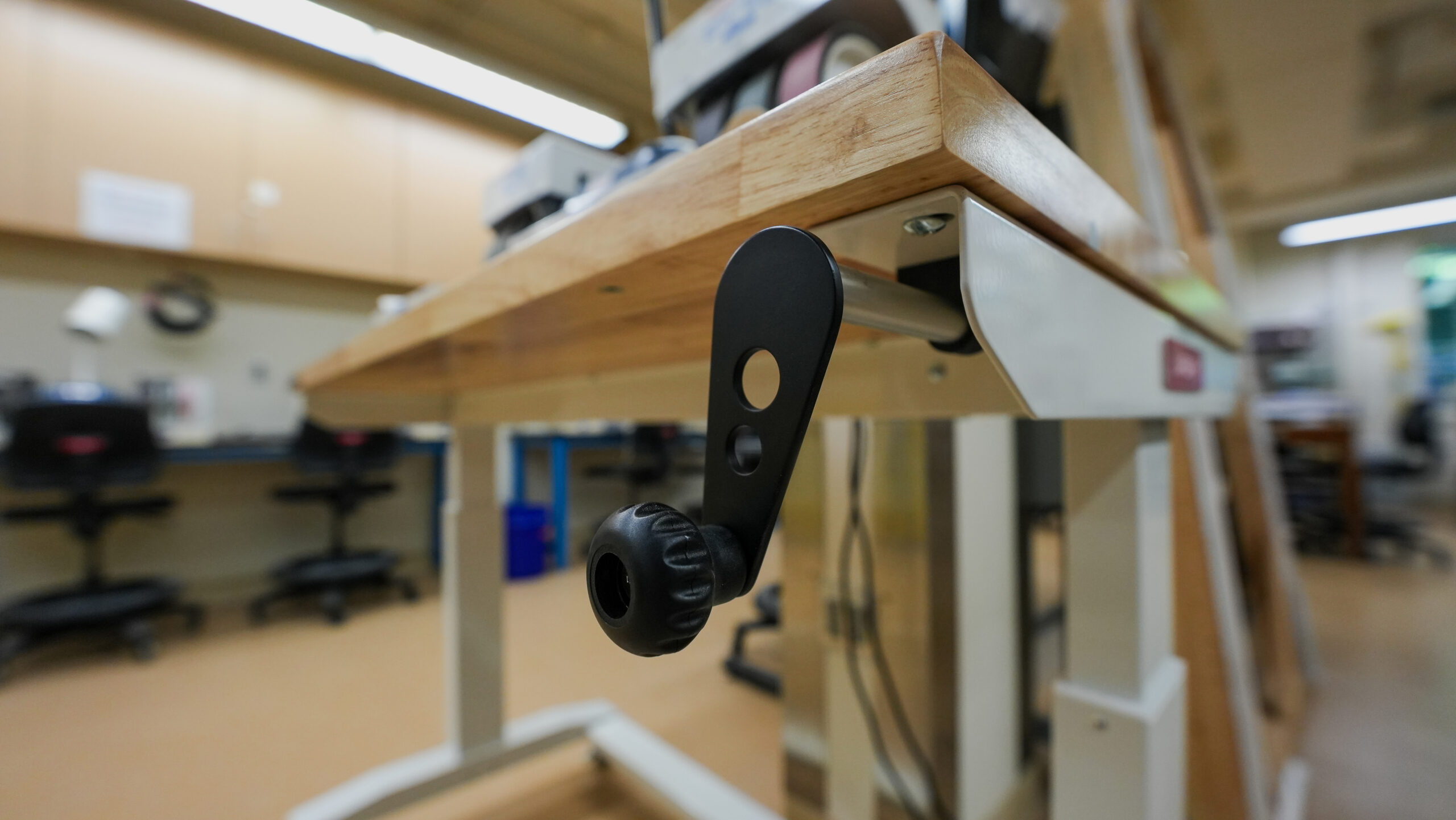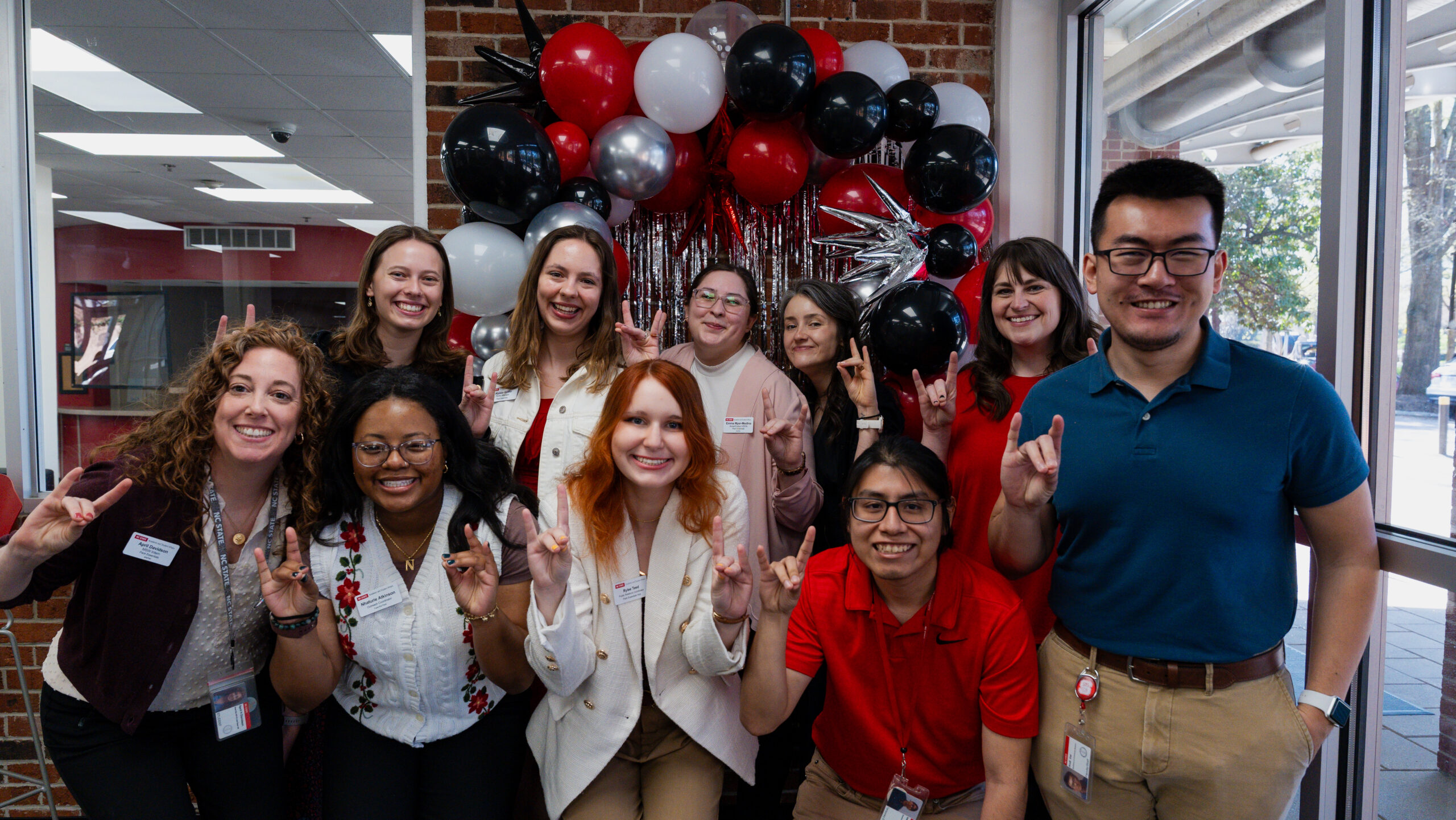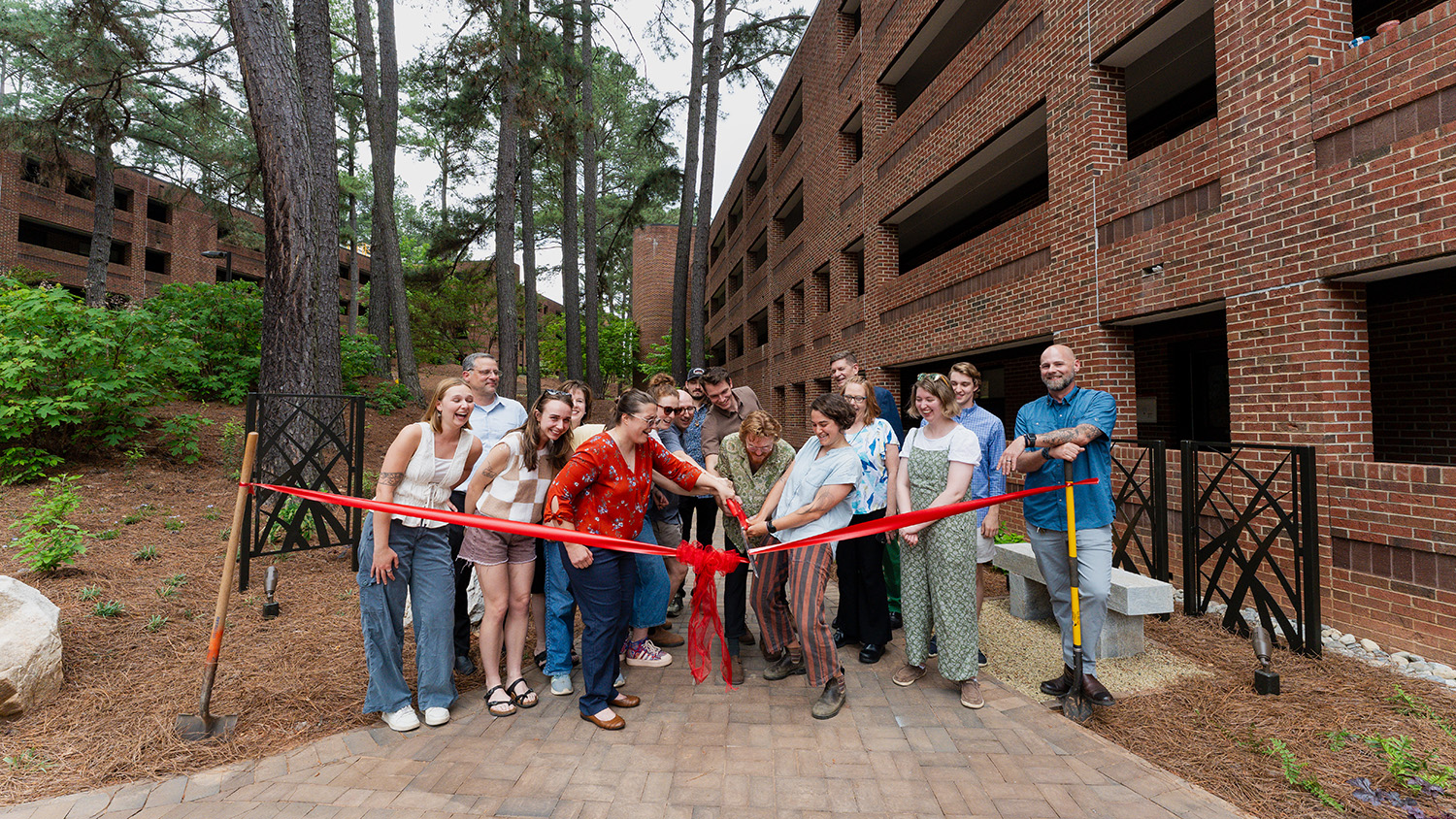Cheetahs, elephants and drones oh my
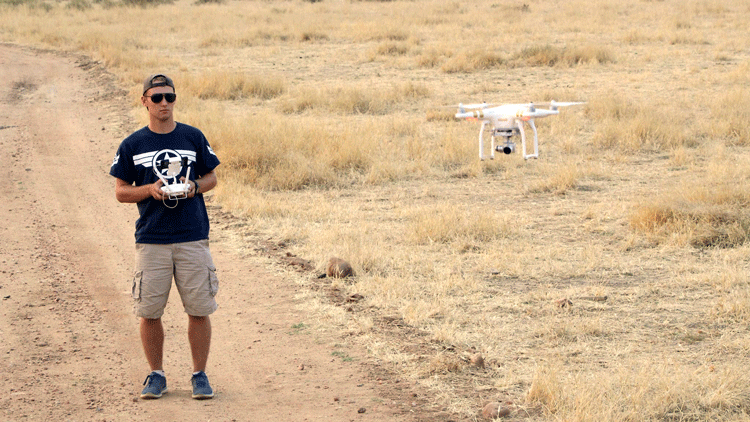
By: Mary Yemma Barnhart, associate director
When Josh Glazer ’19, started at NC State, he never imagined that his experience would have led him to piloting drones in Africa. A graduate student studying aerospace engineering, Josh started his journey with Wellness and Recreation in January 2016 as a challenge course facilitator.
His experiences with Wellness and Recreation helped prepare him for the journey.
“Working with Wellness and Recreation is not only a job, it is a group of people together, one big family. We go on trips together and have fun,” said Josh.
Josh built his community at NC State through Wellness and Recreation outdoor adventures. As a student-employee, Josh, learned the importance of time management. During his sophomore year, he took 21 credit hours of core classes, working many jobs with Wellness and Recreation and flying drones on a competitive team. Josh learned to manage and balance his time and responsibilities during a challenging year, all while staying involved.
After exploring study abroad opportunities and not finding any to meet his academic needs, Josh shared his challenges with a professor, who introduced him to Dr. Larry Silverberg. Silverberg is professor of mechanical and aerospace engineering and director of the Namibia Wildlife Aerial Observatory Project. Josh met Dr. Silverberg and shared his interest in the outdoors, engineering and unmanned aerial vehicles (UAV’s).
“I pitched myself as a team building facilitator for Wellness and Recreation that had a passion for drones,” said Josh.
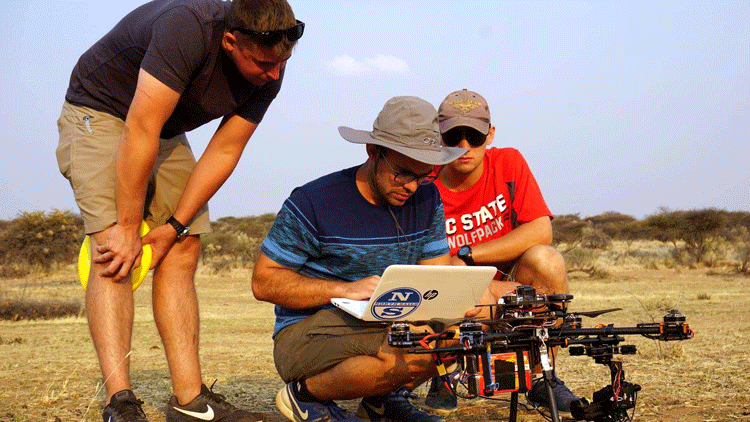
Josh’s unique interests and background landed him on the September 2017 Namibia Wildlife Aerial Observatory (WAO) Project as an undergraduate basic researcher.
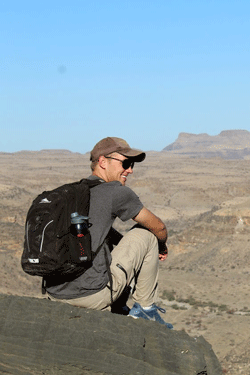
The first few weeks in Africa were not easy. The 6,000-foot altitude was dry. This extreme altitude gave the team chapped lips and sunburns. After adjusting to the surroundings and dry weather, the group was ready to follow the animals daily with drones.
“A big focus was to follow the animals with drones to see how they would react,” said Josh. “Take off, above them and record their reactions.”
“Bigger species, like elephants, don’t react to the drones. The zebra didn’t like the drones, about half of the giraffes got agitated and the warthogs didn’t care at all,” said Josh.
In August 2019, Josh returned to Africa with the Namibia Wildlife Aerial Observatory Project as a graduate student leading the team. On the trip Josh is working with three wildlife students, and three aerospace engineering students and two mechanical engineering students. Josh shared the projects two main goals, finding ways in which drones can be useful to people in South Africa and focusing on how this can help stop poaching efforts.
Josh plans to play “capture the flag” with his team to help make finding poachers more realistic. His anti-poaching team will try to get in to the area and capture the flag without being seen, while the team flying the drones tries to find them.
“Our professor is an amazing idea guy. In fact, many of his ideas and our projects come out of his 6 a.m. basketball games at Carmichael Gym,” said Josh. “I have enjoyed working with him and others on the project.”
While enjoying his time in Africa and interacting with elephants, his favorite animal, Josh hopes to use his experience problem-solving and thinking on his feet from his challenge course facilitator and a project-lead positions to help him find a career as a flight test engineer.
“I would get to travel to different locations and I would be on the edge of the aerospace field, putting things to the brink of the tests. I can do the math, but it doesn’t feel real until you test it,” he said. Read more about the Namibia Wildlife Aerial Observatory Project.
Follow along with Wellness and Recreation as we share the amazing work that our student-employees and alumni are leading.
- Categories:
